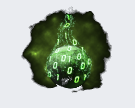ESXI - Base Commands: Difference between revisions
From Wiki.IT-Arts.net
imported>Z No edit summary |
No edit summary |
||
| (3 intermediate revisions by the same user not shown) | |||
| Line 2: | Line 2: | ||
Dealing with EsXi CLI... | Dealing with EsXi CLI... | ||
== Show Interfaces and Subnet Masks == | |||
<nowiki> | |||
esxcli network ip interface ipv4 get</nowiki> | |||
| Line 12: | Line 19: | ||
== Show Interfaces | |||
== Show Interfaces == | |||
The command below will show the physical status of the interface including if the link is up, the MAC address, and speed of the interfaces : | |||
<nowiki> | <nowiki> | ||
esxcfg-nics -l</nowiki> | |||
Or installed network adapters : | |||
<nowiki> | |||
esxcli network nic list</nowiki> | |||
== Show Interfaces MAC Addresses == | |||
<nowiki> | <nowiki> | ||
esxcli network ip interface list</nowiki> | |||
== Show | == Show Active Network Connections == | ||
<nowiki> | <nowiki> | ||
esxcli network ip | esxcli network ip connection list</nowiki> | ||
| Line 42: | Line 55: | ||
== | == Netcat in EsXi == | ||
The command | The 'nc' or Netcat command in Linux is a networking utility for reading from and writing to network connections using TCP or UDP : | ||
<nowiki> | <nowiki> | ||
nc -w <timeout-in-seconds> -z <destination-ip> <destination-port></nowiki> | |||
| Line 64: | Line 77: | ||
esxcli network ip dns server list | esxcli network ip dns server list | ||
DNSServers: 80.67.169.12, 80.67.169.40</nowiki> | DNSServers: 80.67.169.12, 80.67.169.40</nowiki> | ||
== Show VLAN == | |||
Type the following command in the console : | |||
<nowiki> | |||
esxcfg-vswitch -l</nowiki> | |||
Alternatively, in the vMA appliance, type the vicfg-vswitch command—the output is similar for both commands: | |||
<nowiki> | |||
vicfg-vswitch –l</nowiki> | |||
== Show SNMP == | |||
<nowiki> | |||
esxcli system snmp get</nowiki> | |||
== Show Virtual Switches And Port Groups: == | |||
<nowiki> | |||
esxcli network vswitch standard list</nowiki> | |||
== Show Firewall Status and Rule Settings == | |||
<nowiki> | |||
esxcli network firewall get | |||
esxcli network firewall ruleset list</nowiki> | |||
== Show SMART == | |||
List storage devices : | |||
<nowiki> | |||
esxcli storage core device list</nowiki> | |||
Get SMART score : | |||
<nowiki> | |||
esxcli storage core device smart get -d naa.XXXXXXXXXXXXXXX</nowiki> | |||
Latest revision as of 10:29, 9 June 2024
Dealing with EsXi CLI...
Show Interfaces and Subnet Masks
esxcli network ip interface ipv4 get
Show Routes
esxcli network ip route ipv4 list
Show Interfaces
The command below will show the physical status of the interface including if the link is up, the MAC address, and speed of the interfaces :
esxcfg-nics -l
Or installed network adapters :
esxcli network nic list
Show Interfaces MAC Addresses
esxcli network ip interface list
Show Active Network Connections
esxcli network ip connection list
Show ARP Table
esxcli network ip neighbor list
Netcat in EsXi
The 'nc' or Netcat command in Linux is a networking utility for reading from and writing to network connections using TCP or UDP :
nc -w <timeout-in-seconds> -z <destination-ip> <destination-port>
Show DNS Search Domain
esxcli network ip dns search list DNSSearch Domains: example.net
Show DNS Server List
esxcli network ip dns server list DNSServers: 80.67.169.12, 80.67.169.40
Show VLAN
Type the following command in the console :
esxcfg-vswitch -l
Alternatively, in the vMA appliance, type the vicfg-vswitch command—the output is similar for both commands:
vicfg-vswitch –l
Show SNMP
esxcli system snmp get
Show Virtual Switches And Port Groups:
esxcli network vswitch standard list
Show Firewall Status and Rule Settings
esxcli network firewall get esxcli network firewall ruleset list
Show SMART
List storage devices :
esxcli storage core device list
Get SMART score :
esxcli storage core device smart get -d naa.XXXXXXXXXXXXXXX
